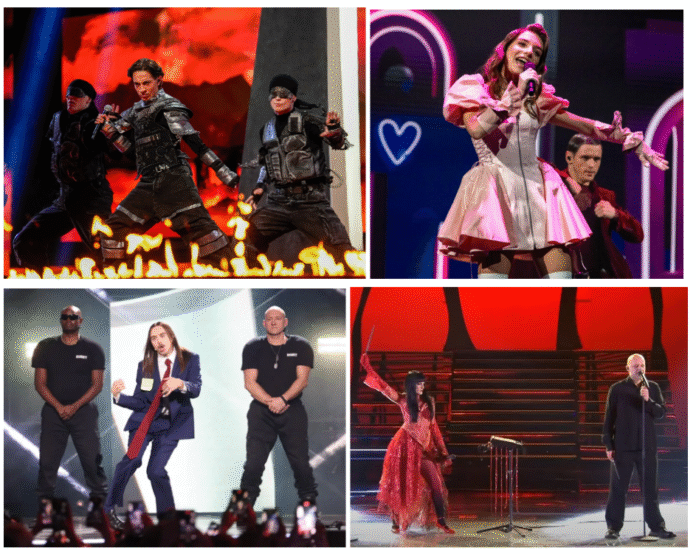By: Jessica A. Dennehy
Eurovision, the competition that launched the careers of musical legends like Celine Dion and ABBA, is once again captivating audiences across the globe. The 69th edition of the Eurovision Song Contest is set to take place in Basel, Switzerland, following Nemo’s victory in 2024 with their performance of “The Code.” The premise of the international competition consists of each participating nation selecting a representative to perform an original song, typically chosen through a national-level competition in early spring, for the digital popular vote of Europe. The Eurovision Song Contest is a mix of breathtaking, creative, and sometimes questionably chaotic performances. This year’s contest will run from May 13-17 at St. Jakobshalle, a venue that can hold over 12,000 fans, with hosts Hazel Brugger, Michelle Hunziker, and Sandra Studer guiding the spectacle.
A total of 37 nations, primarily from Europe, along with Australia and Israel, will compete for the prestigious trophy. While most countries have announced their representatives, a handful remain undecided but are expected to finalize their selections by the end of March. The competition unfolds over three days, starting with the first semi-final on Tuesday, May 13, followed by the second semi-final on Thursday, May 15, and culminating in the Grand Final on Saturday, May 17. In the past, the competition would pull in on average, 180 million viewers. With Eurovision’s reputation for unpredictability, this year promises to deliver its signature blend of music, spectacle, and surprises—along with a few unique twists.
This edition has taken on an especially cheeky tone, perhaps fitting for the 69th year of the contest. Finland is leading the charge with Erika Vikman’s submission, “Ich Komme,” a track that has absolutely nothing suggestive about it at all (please keep this in, guys). Not far behind is Malta’s Miriana Conte with “Kant,” which, as a reminder, simply means “singing” in Maltese. Australia is sending TikTok sensation Go-Jo (aka Marty Zambotto) with “Milkshake Man,” (don’t look up the lyrics) while Estonia’s entry, “Espresso Macchiato” by Tommy Cash, has already sparked controversy for its enthusiastic, almost poetic devotion to Italian coffee culture—much to the bewilderment of the actual Italians.
Some entries delivering serious heat include Norway’s “Lighter,” performed by Kyle Alessandro, and Albania’s “Zjerm” (Fire), performed by Shkodra Elektronike. Spain’s “Esa Diva” and Azerbaijan’s “Run with U” are also generating significant buzz. This year, many countries are embracing their native languages, with Germany submitting a song entirely in German for the first time since 1988. Other performances will feature Icelandic, Latvian, Lithuanian, and even Montenegrin lyrics. Meanwhile, some countries are taking a different approach—The Netherlands’ entry blends French and English, and Estonia is performing in both Italian and English. Sure, why not?
Despite not yet revealing a song or an artist, Sweden remains the odds-on favorite to win. France and Italy, having at least confirmed their representatives, are also strong contenders. With the contest shaping up to be yet another unforgettable mix of music, madness, and mayhem, one thing is certain: Eurovision 2025 will be anything but dull.

